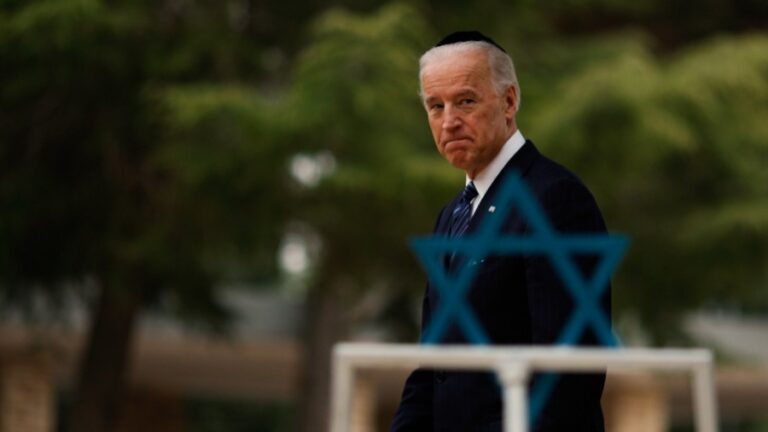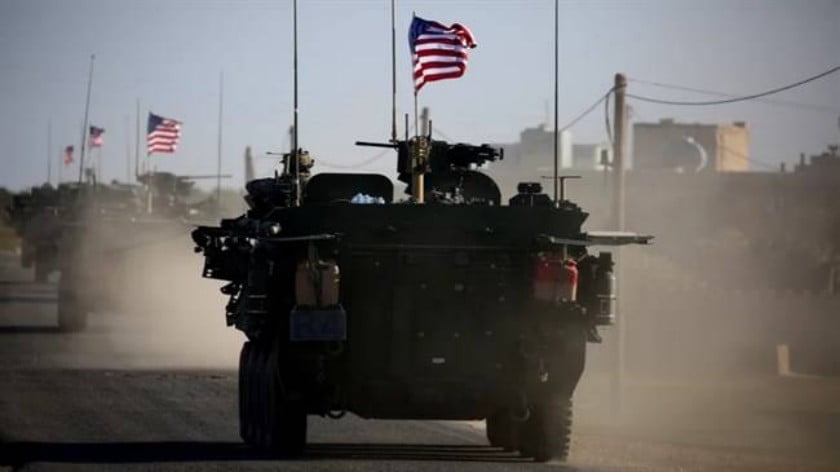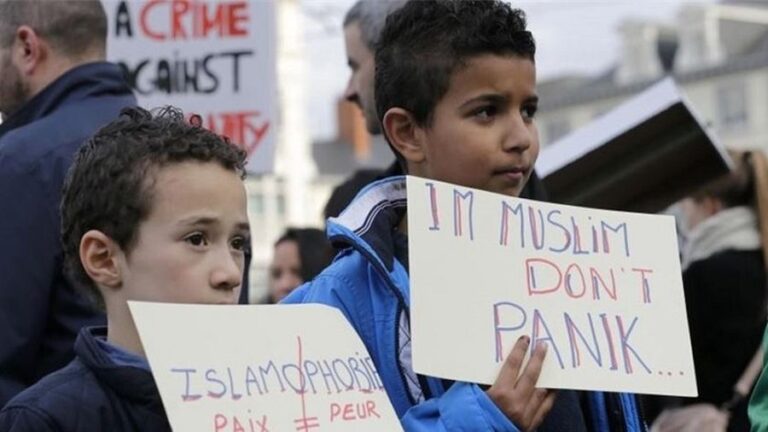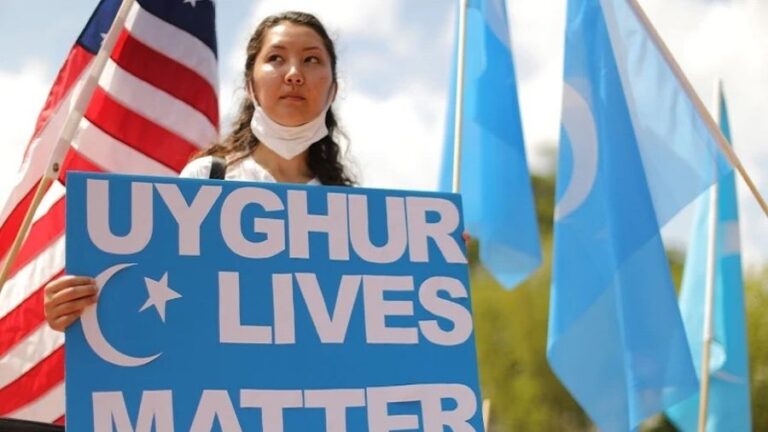Turkey’s Military Options in Iraq and Syria Hinge on US and Russia
“We could arrive suddenly one night” was the common front-page headline in several Turkish newspapers Sept. 26. In a chorus, the papers were trumpeting the warning of military action that President Recep Tayyip Erdogan had issued to the Iraqi Kurdistan Regional Government (KRG) the day before over its independence referendum. The Turkish army had already launched maneuvers near the Habur border crossing with the KRG, involving armor and mechanized units backed by T-129 attack helicopters from the air.
The ongoing maneuvers have since grown into a full-fledged military exercise, with Iraqi counterterrorism teams joining the third phase Sept. 26, marking the first joint military drills between the two countries in years. Is the military flurry on the ground a harbinger of a looming Turkish military operation into northern Iraq?
The question pops up at the time when the Turkish media has been abuzz with the prospect of a large-scale military operation into Afrin, the Kurdish-controlled area across Turkey’s border with Syria, some 500 kilometers (310 miles) to the west of Habur. The Turkish military has been moving tanks and armored vehicles from the country’s northwest to the border province of Kilis, which faces Afrin, as well as to Hatay, which lies to the west of Afrin. Ankara sees the Syrian Kurdish People’s Protection Units (YPG), which control Afrin, as an extension of the Kurdistan Workers Party (PKK), the armed group that has fought Ankara for more than three decades and is considered a terrorist organization by Turkey and much of the international community. The pro-government daily Yeni Safak has even claimed that 25,000 Turkish troops will enter Syria from Hatay’s Yayladagi and Reyhanli districts in early October and go at least 35 kilometers (22 miles) into Idlib.
According to the Turkish media, an operation targeting Afrin may be imminent. Could Turkey attempt a corps-level operation similar to its Operation Euphrates Shield?
With the KRG’s independence vote further rattling the region, Turkey’s military options vis-a-vis northern Iraq and northern Syria are worth analyzing.
To start with, the most important lesson from Operation Euphrates Shield — which began in August 2016 and ended in March — is that a cross-border operation should never be launched without air support. During the course of Euphrates Shield, especially in its final 100-day stage to capture al-Bab, the lack of close air support by warplanes and attack helicopters and force protection by attack helicopters for temporary military outposts, as well as the inability to fly missions to evacuate wounded troops and provide logistical support, bore markedly on the campaign. Thus, the Turkish military is now unlikely to make a move on the scale of Euphrates Shield into northern Syria or northern Iraq without air support.
This means the situation in the air rather than on the ground should be the primary indicator in assessing the likelihood of fresh Turkish military campaigns. In this context, the first prerequisite for an operation in northern Iraq would be for the United States and Baghdad to temporarily open the region’s airspace to Turkish warplanes, attack helicopters and drones for missions of close air support, reconnaissance, surveillance, airborne evacuation of wounded troops and logistical support. Similarly, Russian consent would be needed for the use of Syrian airspace west of the Euphrates River.
In short, if the media begins reporting incidents that Turkish jets are violating Syrian or Iraqi airspace, this would be a sign that Ankara’s intention for a military intervention is serious and that the process of dynamic and static target assessment has begun. How American and Russian officials react to such reports would be crucial. The absence of any negative reaction would mean the country in question has given Turkey the green light.
When it comes to Idlib, we already know that Turkish construction machines and armored vehicles recently crossed to the Euphrates Shield pocket that Turkey controls inside Syria and started intense military engineering work in areas close to Idlib.
Since the early days of the Syrian crisis, Idlib has been home to Salafi groups led by Jabhat Fatah al-Sham (formerly known as Jabhat al-Nusra). The region has a dense civilian population, which means that military operations backed with air support like those in Aleppo would be rather difficult because of the risk of humanitarian tragedies. Hence, both Russia and the Syrian army appear reluctant to engage in monthslong street battles like those in Aleppo. Instead, Russia’s objective is to seek a short-cut solution through negotiations and Turkish help to that effect. This is precisely the reason for the de-escalation zone in Idlib, which Russia, Turkey and Iran agreed to in Astana on Sept. 14-15. The three “guarantor states” said they would be deploying troops in the region. In an interview with Reuters Sept. 21, Erdogan confirmed that Turkey would be sending troops to Idlib.
The plan reportedly involves the deployment of between 300 and 500 Turkish troops in Idlib city, which would allow Russian and regime forces to negotiate neighborhood by neighborhood under Turkish mediation and coordination as they advance into the center of Idlib. Reports from the ground, however, indicate that clashes with Hayat Tahrir al-Sham, al-Qaeda’s former affiliate, would be inevitable as they inch forward into inner regions.
What Turkey pulls out in Idlib could be crucial for its plans on Afrin. Moscow would be pleased if Turkey manages to separate moderates from radicals in the armed opposition, help Russian-backed regime forces seize Idlib at the least military cost, evacuate armed militants and their families to the Euphrates Shield pocket, resettle them in this area and keep them isolated and under control there. Consequently, the Kremlin might give its consent to a Turkish pincer operation on Afrin, where Turkish troops would move on the region from the south, advancing from two sides — out of the Euphrates Shield pocket westward and from Turkey’s Hatay province eastward.
Afrin, which borders Turkey both to the north and the west, is disconnected from the two other Kurdish cantons, Kobani and Jazeera, which lie on the eastern side of the Euphrates. The Russians have sought to act as a sort of a protector for the Afrin Kurds, which gives them important leverage in controlling the YPG as the group collaborates with the United States on the eastern side of the Euphrates.
US-backed YPG forces are currently involved in campaigns to retake Raqqa and Deir ez-Zor. If the Kremlin decides the Syrian Kurds are not playing the diplomatic game in line with Russia’s — and therefore Damascus’ — road map and have gone too much under US control, it is likely to give Ankara the green light for a military move on Afrin, which it has withheld so far. In other words, Moscow seems to be using the Afrin card to keep Ankara on its side, while holding Afrin hostage to prevent the Syrian Kurds from deepening their ties with the United States and fend off the possibility of too much US control over them.
Since Sept. 28, Russian and Syrian planes have been conducting air raids in the west and southwest of Idlib in areas very close to the Turkish border. Unconfirmed reports from local sources even claim that the jets have been using Turkish airspace for the strikes. Remarkably, this is the same border stretch where Turkey shot down a Russian jet in November 2015 on the grounds it violated Turkish airspace.
Finally, Washington must not be very happy with the fact that Russia, Iran and Turkey have been making and implementing deals for some time without US participation and consent. The de-escalation zones created by the trio have pushed the United States out of the game. Hence, Washington might try various ways to open a crack on this trilateral front, including by offering Turkey — “the weakest link” — a precious “carrot.” What the carrot could be is a topic on its own, but in any case it has to be something on the PKK issue.
By Metin Gurcan
Source: Al Monitor







